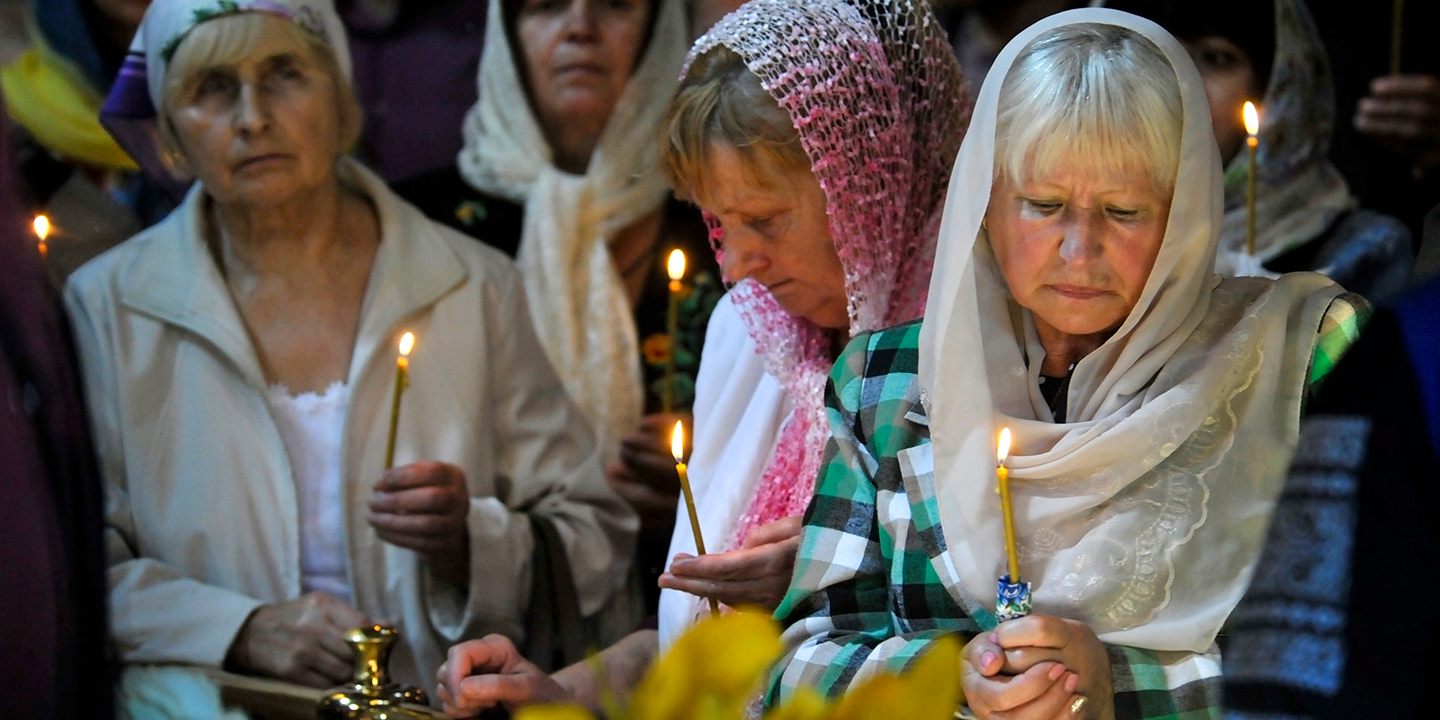

Atrocity Alert No. 336: Ukraine, Central African Republic and Nicaragua
Atrocity Alert is a weekly publication by the Global Centre for the Responsibility to Protect highlighting situations where populations are at risk of, or are enduring, mass atrocity crimes.
ONE YEAR OF WAR AND ATROCITIES SINCE RUSSIA’S INVASION OF UKRAINE
This Friday, 24 February, marks one year since Russia’s full-scale invasion of Ukraine. The conflict has brought devastation and mass civilian casualties across the country. In a statement on 21 February UN High Commissioner for Human Rights, Volker Türk, noted that the UN had documented over 8,000 civilian casualties since the war began while emphasizing that the actual figure is considerably higher. High Commissioner Türk lamented, “This war…is a blatant affront to the UN Charter and the whole body of international law built to protect human beings everywhere, and its vast human toll must end now.”
Likely war crimes and crimes against humanity have been perpetrated throughout the conflict, including attacks on civilian infrastructure and cultural heritage, forced deportations and the use of indiscriminate weapons, among others. Over the past year the World Health Organization has documented over 800 attacks on healthcare that have killed more than 100 people. As of 23 December at least 2,619 educational institutions have been damaged by the conflict and 406 destroyed, according to the Ukrainian government. More than 14 million people have been displaced and 18 million Ukrainians – 40 percent of the population – need humanitarian assistance.
One year on, civilians across the country face the prospects of air and drone strikes by long-range – and often inaccurate – missiles, which regularly target civilian infrastructure, including homes, hospitals and energy sites. Most recently, a strike on an apartment building in Dnipro killed at least 46 civilians and wounded 80 others on 14 January.
Conflict also continues to progress in Ukraine’s eastern Donetsk and Luhansk regions, an area collectively known as Donbas, where Russia has been vying for control since 2014. Since mid-February attacks on humanitarian aid warehouses in Donbas and southern Ukraine have increased, with three attacks occurring between 19-20 February alone. The strikes on these facilities have compromised aid delivery to people enduring heavy hostilities in Bakhmut, Avdiivka and other front-line communities.To draw renewed attention to the crisis, today, 22 February, the UN General Assembly will resume its 11th Emergency Special Session on Ukraine, which originally began on 28 February 2022. During the session, member states are expected to vote on a draft resolution that emphasizes the urgent need to reach a peaceful settlement to the conflict in line with the UN Charter.
While further action in the General Assembly is a welcome step, it is non-binding and cannot hold parties to the conflict accountable to a cessation of hostilities or for the atrocities committed in Ukraine. Executive Director of the Global Centre for the Responsibility to Protect, Savita Pawnday, said, “In the year since Russia invaded Ukraine, we have seen an unprecedented international response. Despite the efforts taken thus far, war crimes and crimes against humanity continue as civilians yet again pay the highest price of conflict. The international community must remain committed to supporting Ukraine and ending the atrocities being committed against all Ukrainians.”
CIVILIANS IN CENTRAL AFRICAN REPUBLIC CONTINUE TO BE CAUGHT IN THE CROSSFIRE
Following a visit to the Central African Republic (CAR), on 20 February the UN Independent Expert on the situation of human rights in CAR, Yao Agbetse, expressed grave concern for the human rights situation, citing violations perpetrated in the context of a violent offensive by armed groups and efforts by the government to combat their actions. Agbetse reported that from October to December 2022 the UN peacekeeping mission in CAR (MINUSCA) verified 483 human rights abuses and violations of International Humanitarian Law (IHL) that affected 1,300 civilian victims.
Notably, the Internal Security Forces, government armed forces (FACA) and allied mercenaries were responsible for 58 percent of the violations recorded by MINUSCA, resulting in 70 percent of the victims. Government forces were responsible for arbitrary arrests and detentions, violations of the right to life, physical and mental integrity and abuses at roadblocks. Meanwhile, the Independent Expert said that “Russian bilateral forces” continue to obstruct operations by MINUSCA and inflict cruel, inhuman, humiliating and degrading treatment on civilians. The UN also documented allegations of abductions, kidnappings and summary executions of civilians by Russian bilateral forces.
While the government’s counter-offensives have been ongoing for two years, in recent months FACA and mercenaries from the Wagner Group, a Russian private security company, have been attempting to secure mineral-rich areas by dislodging armed groups towards border areas. Since December armed groups, who have been uprooted from certain territories, have escalated their attacks and increasingly targeted civilians, humanitarian organizations and MINUSCA. Heightened armed group activity along the borders, especially in the northwest, northeast and center south, has also stoked regional tensions with neighboring countries.
Amidst the ongoing clashes, armed groups have increasingly used explosive devices, including improvised explosive devices, anti-personnel mines and artisanal airdropped bombs, among others. According to the UN Mine Action Service, during the first six weeks of 2023, there were 14 incidents involving explosive devices – eight of which occurred in the first half of February alone. Most of the incidents occurred in the west of the country, where the security situation remains tense. Christine Caldera, CAR expert at the Global Centre for the Responsibility to Protect, said, “The growing presence of explosive devices in CAR is threatening civilians, hampering MINUSCA’s civilian protection efforts and disrupting the work of humanitarians delivering life-saving aid to vulnerable populations in conflict affected areas.”
CAR authorities, neighboring states, regional organizations and the UN should coordinate efforts to address growing tensions and insecurity near border areas. The increasing use of explosive devices underlines the need to continue strengthening mine risk education efforts, including with UN and humanitarian personnel. All armed actors must rigorously adhere to their obligations under IHL and International Human Rights Law.
HUNDREDS STRIPPED OF CITIZENSHIP AS NICARAGUAN GOVERNMENT INTENSIFIES REPRESSION
Since early February the government of President Daniel Ortega in Nicaragua has revoked the citizenship of more than 300 alleged political opponents. On 9 February Nicaraguan authorities forcibly deported 222 of these individuals, who had been arbitrarily detained for political reasons, and sent them to the United States. According to Erika Guevara-Rosas, Americas Director at Amnesty International, “Those detained spent days, months and years in arbitrary detention, under extreme conditions, and today have been forced into exile solely for demanding human rights.” The decision is being viewed as a new tactic of intensifying government repression and the UN Refugee Agency (UNHCR) warned that “arbitrary deprivation of nationality may amount to persecution” and is in breach of international law.
For years, Nicaragua has been experiencing an unprecedented human rights crisis caused by erosion of democratic space and the rule of law. President Ortega maintains absolute control over the country’s institutions, including the judiciary and legislative branch, and has pursued a systematic policy of silencing dissenting voices. The Office of the UN High Commissioner for Human Rights, as well as Independent Experts mandated by the Inter-American Commission on Human Rights (IACHR), previously established that the government committed possible crimes against humanity during their crackdown on anti-government protests starting in April 2018. Since then, political opponents, journalists, human rights defenders, academics and religious and social leaders, among others, have been targets of systematic arrests, criminal prosecutions and reprisals, including arbitrary detention and ill-treatment.
The revocation of citizenship exemplifies the government’s further descent into authoritarian rule. The government has shut down more than 3,000 civil society organizations, more than half of which since September 2022 alone. The government has also closed 26 national media outlets in what UN Special Rapporteurs and IACHR define as “clear patterns of repressing civic space.” According to UNHCR, Nicaraguans constituted the third largest population applying for asylum in the first six months of 2022.
The latest action comes weeks before the UN Human Rights Council’s (HRC) 52nd session, during which UN member states will discuss a report by the Group of Human Rights Experts on Nicaragua (GHRE). Since April 2018 the GHRE has been mandated to conduct investigations into human rights violations and abuses committed in Nicaragua.
The HRC should strengthen and renew the mandate of the GHRE for a period of two years. As the Nicaraguan government has refused to engage with regional and international human rights mechanisms and procedures, and continues to persecute alleged opponents, ongoing investigations and public reporting remains crucial to ensure international scrutiny on the deteriorating crisis. Elisabeth Pramendorfer, Latin America expert at the Global Centre for the Responsibility to Protect, highlighted, “All member states must actively support the renewal of the GHRE, and explore further avenues to increase multilateral pressure on the Nicaraguan government to end systematic human rights violations and abuses.”
Related Content


Expert Voices on Atrocity Prevention Episode 42: Dirk Moses
